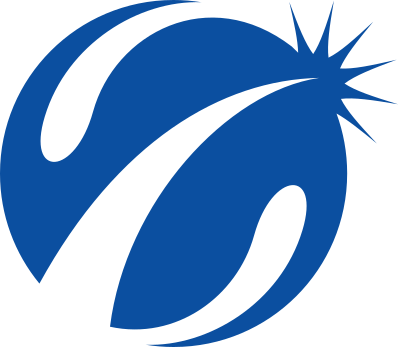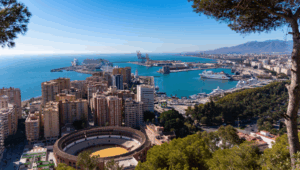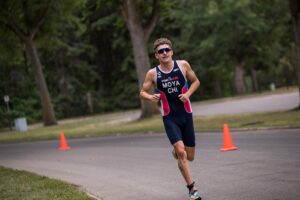A few words with Alex Taubert
German Pro Alex Taubert last raced in Kona in 2006 and we talked to him about his health issues, new supporting role, racing Ironman Frankfurt last weekend, the ugly doping issue and much more.
Slowtwitch: Alex, thank you for your time.
Alex Taubert: You are welcome, I am glad to see that my activities are still interesting even after a long time away.

ST: You just finished Frankfurt and we were curious about how you feel.
Alex: I have to say that I thought a long time if I should even start in Frankfurt, because I had gotten medical advice that I should no longer compete in races. In 2011 I was surprised with atrial fibrillation and had to get a heart ablation. After a few races in 2012 it started to flutter again and that made a second ablation necessary. I did not compete in 2013, but wanted to do one more Ironman despite the heart issues, but with the caveat to keep the heart rate sub 150.
Unfortunately I could not start my run training until February and then in March/April I had to take a 6-week break because of a calf issue. My run performance in Frankfurt was according, and especially the second half of the marathon not very amusing.
I am glad I crossed the finish, but my legs do not feel good at all.
ST: So this was your big race?
Alex: Frankfurt was my first race in 2 years. I avoided preparing events to not put pressure on my heart during shorter and more intense races.
ST: When was your last start in Kona? Was that 2006?
Alex: Yes, 2006 was my last race in Kona. My race did not go as planned, as I got a penalty for drafting on a section early in the race where it had been said that in that spot would be no penalties, because it was going uphill there. That was at least the comment of the head referee Jimmy Riccitello a year later.
ST: I remember quite well how you won your age group from 1991 to 1994 and I think many would have liked to be in your shoes.
Alex: The first few years in the age group were very successful for, and I could always play out my running strength and heat comfort in Kona. The steadiness on the bike came only a few years later, but I think that was simply a part of my personal development.

ST: Your best result in Kona was 2004 with a fourth place, and you have a total of four top ten finishes to your name. Is that something you are content with or was there something missing?
Alex: When you place 4 times in the top ten, would one think that it is a must to have a top 3 spot or even a win? I see that differently. My goal was always to cross the finish line with the feeling that I gave it all, and the actual place was always secondary. If your expectations are too big you will experience unnecessary pressure, and in the end you will be measured after the race by your own words and announcements.
ST: Is the interest still there, or is slowly fading away?
Alex: I competed in Ironman in Frankfurt because I was intrigued again and wanted to know if my heart can deal with the stress, but did not accept the Kona spot because I did not want to risk playing more games with my health. Plus I will always measure myself against past performances, which is not very satisfactory. Plus simply going to the start just for fun, is not going to happen.
ST: I thought you try to avoid having expectations.
Alex: Yup, that is what I thought, but it just does not always go according to the plan. In the heat of competition it was very difficult to focus on my own performance, and ignore the competition. I guess that is why the event is a competition.
In Frankfurt I caught my self several times responding to accelerations of others, when it would have been better to ride my own pace. For example, during the second lap I tried to split up the group, because all the drafting was really going on my nerves. But with all the headwind I used way too much energy and the result was that 15km before T2 the group was right back on me – a classical mistake. Those who spent almost 170km rolling along, then decided to ride those last 10k (downhill) at the front. That is very annoying.

ST: Did you keep your heart rate below 150?
Alex: Yes, on the bike I never went above 150. At the beginning of the run I briefly hit 152, and the rest was below.
ST: You swam well in Frankfurt and had thus most age groupers behind you, and that included Antonio Colom. When did he pass you?
Alex: In terms of swimming it was one of my most relaxed Ironman events, which was very surprising to me. Over the winter I averaged about 5km per week and the last 4 weeks leading up to Frankfurt almost 10km per week. I guess I have not forgotten how to swim.
The Spaniard caught me about 30km into the bike segment – unbelievably fast.
ST: Was there any attempt to stay with him?
Alex: No, not even for a second. He came by my like a moped and I already was going 42km/h. Later I finally realized why [he came by so fast.]
ST: Did you know who he was?
Alex: I had no idea who he was, but I wondered right away what he might have had in his tank.
ST: What is your opinion about dopers who come to triathlon from others sports, plus how do you feel about triathletes who have gone down that path. Should they get a second chance?
Alex: I have an opinion that is very clear, and which may appear a bit harsh or radical, but I am completely against second chances for cheaters. There is a saying that goes “he/she who lies once, won’t be believed again” and there is quite a bit of truth in that. If it is indeed so that this Spaniard has been caught doping twice already, then there is proof right there. And what about those who were cheated and did not get the Kona spot? Of course, their second chance is to spend a lot of money next year to get another attempt. I find this system wrong.
In my opinion only draconic penalties will serve as a adequate warning.
On a slightly unrelated note, I think former Pro road cyclists should not start as age groupers, especially if they just recently ended that Pro road cycling career.

ST: I am not sure about him being caught twice, but he was surely caught once and subsequently banned.
Alex: If once or twice does not really matter. It is a fact that he has already cheated, which shows the principle attitude of that person towards the sport clearly. I also read an article about doping where it stated that the after effects of such prohibited substances can be felt for years. Plus I am speculating here, but who knows what he has used while he was banned.
ST: There is talk about an increasing amount of doping in age group racing. Do you also see this as a problem?
Alex: Who ever thinks that doping is only part of the elite world likely also believes in Santa Clause. A study conducted at Ironman Frankfurt and 70.3 Wiesbaden a few years ago showed that 1/3 of those age group athletes questioned admitted to have anonymously to have doped. But one has to think that it was and currently is likely more.
The problem will likely increase in the next few years and that is a not a good situation. It is unfortunately also easier and easier to get prohibited substances. The trend is definitely going in the wrong direction.
ST: Many folks also complain about all the drafting in the big races. How is that in your view now compared to the 90s?
Alex: That is the next big problem of triathlon, which is mostly connected to larger starter fields. How should 3,000 competitors ride without drafting? There are certainly those who try to ride fair and keep the correct distance, but others look for the draft of a group and ride purposely unfair. When confronted about that, they point fingers at others.
In Frankfurt I was able to watch it closely, and near me I also noticed Pro women who took advantage of that. Of course no one speaks about that after the race, but if you look at it objectively, had those women not ridden these bike times, that would have also impacted their run splits.
ST: You are a coach now. In addition to confidence and physical fitness, do you also talk with them about ethics?
Alex: I try to make sure that especially the young triathletes understand that they need to do the sport for joy and that unfair methods are never acceptable. I think especially in the early years the foundation has to be set. If we set a negative example for those who come after us, we don’t have to wonder if we later have to deal with problems along the lines we just discussed.

ST: What else is new?
Alex: In 2008 I began the distribution of Osymetric rings in Germany and this year also convinced Andreas Raelert to use them. Who knows, maybe we will see one or more Pros in Kona with them.
I will be back in Kona again in a supporting role for the Sauerland Team. That was a lot of fun last year, and we will have another episode of that.
ST: Is it a different stress to be there and not race?
Alex: The first years after my last Kona start I could not handle going back to the island to watch the race. To take part in the Ironman World Championships was for 16 years and important part of my athletic career and thus an important part of my life, and lots of other things were pushed aside.
The idea in 2013 to go there in a contributing position was a decision I made without too much outside input. I was very intrigued to come back, and when I arrived in Kona it felt as if I only had been gone for a year. I really enjoyed the time before the race – swimming in the ocean in the mornings and running a bit in the evenings. I just did not feel like bike riding. To watch the race from the outside was also very relaxing and I had no problems with it. But 16 starts were maybe simply enough.
ST: What did you think about the coffee boat?
Alex: The coffee boat was a new experience for me. Even though I rarely drink coffee , I very much enjoyed the trip to it.
ST: So we will see you then in Kona.
Alex: If nothing else gets in the way we will certainly see each other in Kona. I am already looking forward to it.






